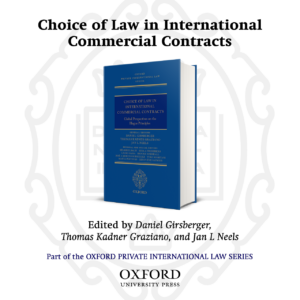Views
Nothing Found
Sorry, no posts matched your criteria
News
The second EFFORTS Newsletter is here!
EFFORTS (Towards more EFfective enFORcemenT of claimS in civil and commercial matters within the EU) is an EU-funded Project conducted by the University of Milan (coord.), the Max Planck Institute Luxembourg for Procedural Law, the University of Heidelberg, the Free University of Brussels, the University of Zagreb, and the University of Vilnius.
The EFFORTS Project tackles, notably, the Brussels Ibis Regulation and the Regulations on the European Enforcement Order, the European Small Claims Procedure, the European Payment Order, and the European Account Preservation Order. By investigating the implementation of these Regulations in the national procedural law of, respectively, Belgium, Croatia, France, Germany, Italy, Lithuania, and Luxembourg, the Project aims at enhancing the enforcement of claims through more efficient procedures, case management, and cooperation in cross-border disputes.
The second EFFORTS Newsletter has just been released, giving access to up-to-date information about the Project, save-the-dates on forthcoming events, conferences and webinars, and news from the area of international and comparative civil procedural law.
Regular updates are also available via the Project’s LinkedIn and Facebook pages.

Project JUST-JCOO-AG-2019-881802
With financial support from the Civil Justice Programme of the European Union
Book Launch: Choice of Law in International Commercial Contracts – 4 May 2021
Coming up tomorrow – Book Launch: Choice of Law in International Commercial Contracts – 4 May 2021
The global PIL community is invited to celebrate the launch of the book “Choice of Law in International Commercial Contracts” (Oxford University Press, 2021). This study provides a definitive reference guide to the key choice of law principles on international contracts, including 60 national and regional reports written by experts from all parts of the world, and a dedicated commentary on the Hague Principles as applied to international commercial arbitration.
When: May 4, 2021 02:00 PM CEST
Where: Online (Zoom-Webinar)
Register here:
https://unilu.zoom.us/webinar/register/WN_ivzYmgFQQkSdUKZCEDRriQ
After registering, you will receive a confirmation email containing information about joining the webinar. The event will also be live streamed via YouTube; the link will be posted five minutes before the start time here.
The programme reads as follows:
14:00-14:10 – Welcome and acknowledgments | Daniel Girsberger
14:10-14:35 – Overview of the process | Daniel Girsberger and Marta Pertegás
14:35-15:00 – General Comparative Report, with a focus on Art. 3 | Thomas Kadner Graziano
15:00-15:10 – Further general matters | Jan L Neels
15:10-15:15 – Publisher’s address | Andrew Dickinson
15:15-15:20 – Regional perspective: Africa | Jan L Neels and Eesa A Fredericks
15:20-15:30 – Regional perspective: Asia | Yuko Nishitani and Béligh Elbalti
15:30-15:35 – Regional perspective: Australasia | Brooke Marshall
15:35-15:40 – Regional perspective: Europe | Thomas Kadner Graziano
15:40-15:50 – Regional perspective: Latin America | José A Moreno Rodríguez and Lauro Gama
15:50-15:55 – Regional perspective: North America | Geneviève Saumier
15:55-16:05 – HCCH, UNCITRAL and UNIDROIT perspectives | João Ribeiro-Bidaoui, Luca Castellani, and Anna Veneziano
16:05-16:15 – Future plans and concluding remarks | Agatha Brandão and Daniel Girsberger
16:15-16:45 – Q&A
More information about the book:
A 30% discount code will be available for all attendees.

HCCH Monthly Update: April 2021
On 14 April, the Working Group on the Practical Handbook on the Operation of the 2000 Protection of Adults Convention met for the first time. Comprised of experts with experience in the operation or implementation of the 2000 Protection of Adults Convention, the Working Group will meet via videoconference every two weeks, between 14 April and 23 June, in order to continue the development of a draft Practical Handbook on the operation of the Convention. More information on the 2000 Protection of Adults Convention is available here.
On 20 April, the Permanent Bureau announced the launch of the Legal Guide to Uniform Instruments in the Area of International Commercial Contracts, with a Focus on Sales, a joint publication of the Secretariats of UNCITRAL, UNIDROIT and the HCCH. The Legal Guide offers an overview of the principal legislative texts prepared by each organisation and illustrates how these texts interact to achieve the shared goals of predictability and flexibility. It is intended as a user-friendly resource for those interested in the adoption, application, and interpretation of uniform contract law. More information is available here.
On 22 April, the HCCH participated in the online international seminar “The Practical Operation of the Hague Convention of 25 October 1980 on the Civil Aspects of International Child Abduction“, organised by the German Foundation for International Legal Cooperation (IRZ) and the Ministry of Education and Science of the Republic of Kazakhstan. The seminar was attended by more than 100 participants from Germany, Kazakhstan and Turkey. This event was a follow-up to the seminar on the HCCH 1980 Child Abduction Convention held on 9 December 2020. The recording of the seminar is available here.
On 29 April, Professor William Duncan, former Deputy Secretary General of the HCCH, received an honorary doctorate from Trinity College Dublin, the highest form of recognition from the College. This honour follows his Presidential Distinguished Service Award for the Irish Abroad in November 2020 and is a further tribute to Professor Duncan’s life-long contribution to academic research, law reform, and children’s rights both in Ireland and abroad. On behalf of the HCCH, the Permanent Bureau congratulates Professor Duncan on being awarded this prestigious honour.
Vacancy: The HCCH is currently seeking a(n) (Assistant) Legal Officer. The deadline for the submission of applications is this Sunday, 2 May 2021 (00:00 CEST). More information is available here.
These monthly updates are published by the Permanent Bureau of the Hague Conference on Private International Law (HCCH), providing an overview of the latest developments. More information and materials are available on the HCCH website.


